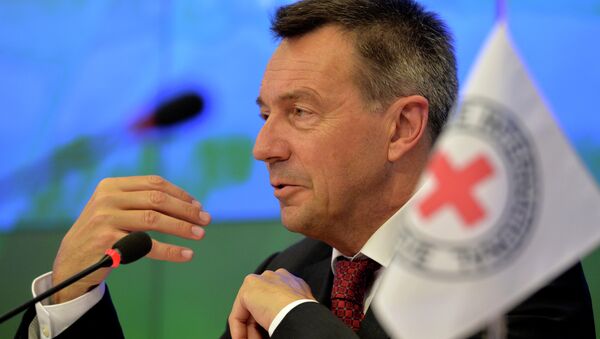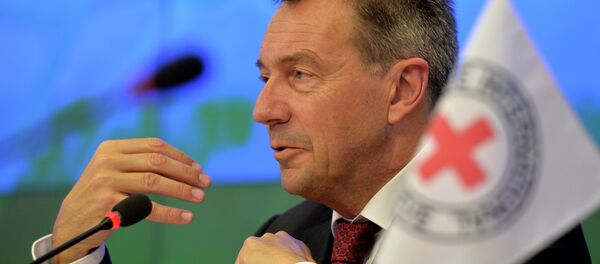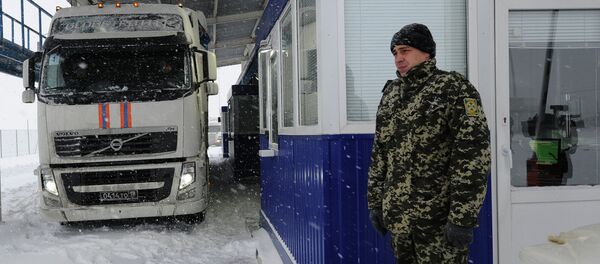"I received a commitment from both [Ukrainian] President [Petro] Poroshenko and [Russian] President [Vladimir] Putin that civilians affected by the conflict would have access to humanitarian aid. The implementation of the Minsk agreement will therefore allow the ICRC to further increase humanitarian assistance in the weeks to come," Maurer said.
The ICRC president visited both Moscow and Kiev on February 23-27, where he held high-level talks with the two countries' leaders on the humanitarian situation in southeastern Ukraine.
Maurer expressed hope the warring parties would uphold the ceasefire in effect since February 15 under the Organization for Security and Co-operation in Europe (OSCE) monitoring mission's supervision.
"We have yet to grasp the full impact of this fighting," the ICRC head said following his four-day trip.
According to the most recent data, Russia's Rostov region is currently hosting 39,000 Ukrainian refugees and Krasnodar region – about 38,000.
Earlier this month, the UN High Commissioner for Refugees cited the Ukrainian Social Policy Ministry's figures for internally displaced people, which stood at 980,000 and was expected to rise.
To date, Russia has sent 16 humanitarian convoys to the crisis-hit east Ukraine since August 2014, supplying food, water, clothes, medicines, power generators and building materials.





